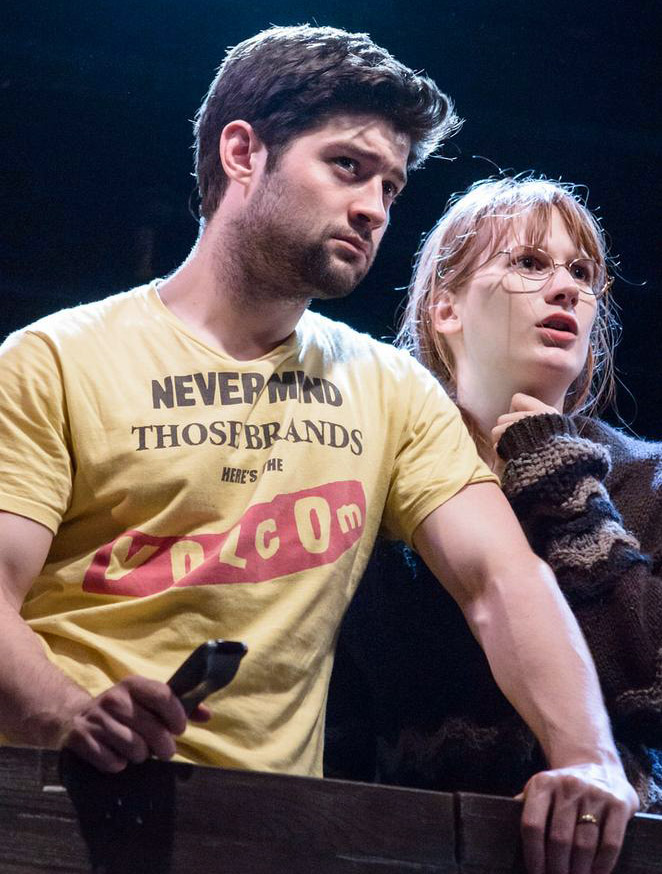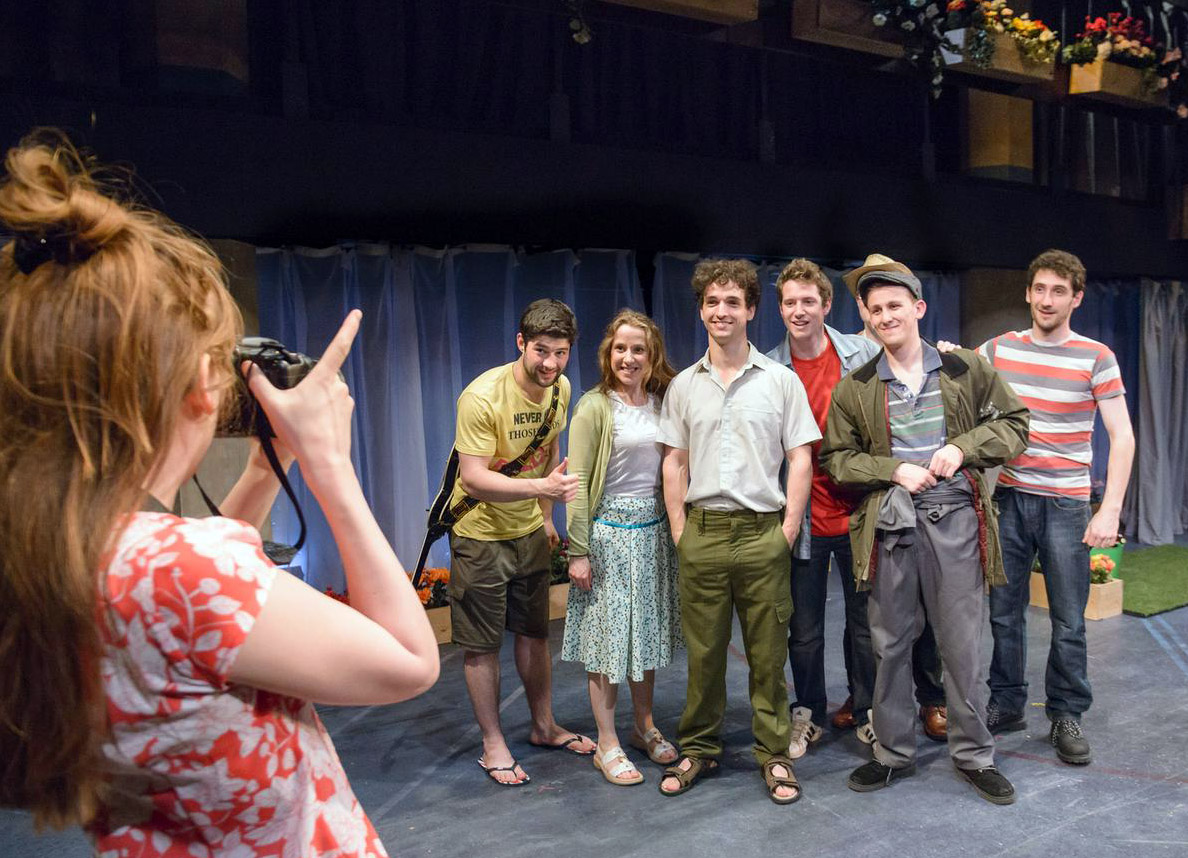In London Road Alecky Blythe has brought together musical theatre and social realism in highly innovative fashion. To do so she engaged directly with people whose lives were disrupted by a series of murders that became national news when, in a six-week period late in 2006, the bodies of five sex workers were found in and around Ipswich. This may seem to be decidedly unpromising and perhaps even tasteless material for a musical, but Blythe has used these horrors as the starting point for a fascinating examination of a community responding to the pressure of extraordinary events. She interviewed local people following the discovery of the fifth body and recorded their words verbatim. What they said, complete with every hesitation, repetition and non sequitur was then been set to music by Adam Cork, creating a most unusual mixture of documentary and song.
In Nicholas Bone’s production for the Bristol Old Vic Theatre School twelve actors play the residents of London Road, ordinary people who have had to come to terms with the knowledge that a serial killer has been living in their street. The cast listened to Blythe’s original recordings to ensure absolute fidelity to the original voices. In the opening scene the residents are at their Neighbourhood Watch AGM where they are discussing a gardening competition. At first the incongruity of hearing them sing lines like, ‘Begonias, petunias, um, impatiens and things’ is simply comic, but soon the music gives their commonplace speech other qualities. The effect can be to give mundane language the quality of poetry. When a phrase such as ‘Everyone’s very, very nervous’ is repeated rhythmically, taken up by other voices and delivered with contrapuntal complexity it can be transformed into something quite new, and moving. However, there are moments when the music simply serves to underline the emptiness of the original sentiments, and I did find myself wondering if Blythe’s technique was unfairly exploiting the ordinariness of the residents of London Road.
In addition to the twelve residents of London Road, the actors play over fifty other parts; from giggly teenage girls both scared and excited by the thought that any man they know might be the murderer, to competitive TV reporters anxious to be the first with the latest news. This is very much an ensemble piece and all the performances are excellent, as is the music provided by a seven-piece band under Pamela Rudge’s direction.
The focus of the play is undoubtedly on how this community grew closer together in the aftermath of all the unpleasantness. But while there is much reassuring, cosy neighbourliness, and a great deal of comedy, there is also more than a glimpse of some dark moral ambiguities. In many ways the area benefitted from the attention it received following the murders, yet there is precious little sympathy expressed for the victims, and in the most powerful scene three prostitutes stare in accusatory silence at the audience for an uncomfortably long time. The final scene is celebratory, uplifting and spectacularly floral, but you might leave London Road with some nagging questions about how respectable people respond when they find less respectable people’s personal tragedies intruding on their quiet lives. This is a very entertaining, unusual and thought-provoking production. Strongly recommended. ★★★★☆ Mike Whitton



